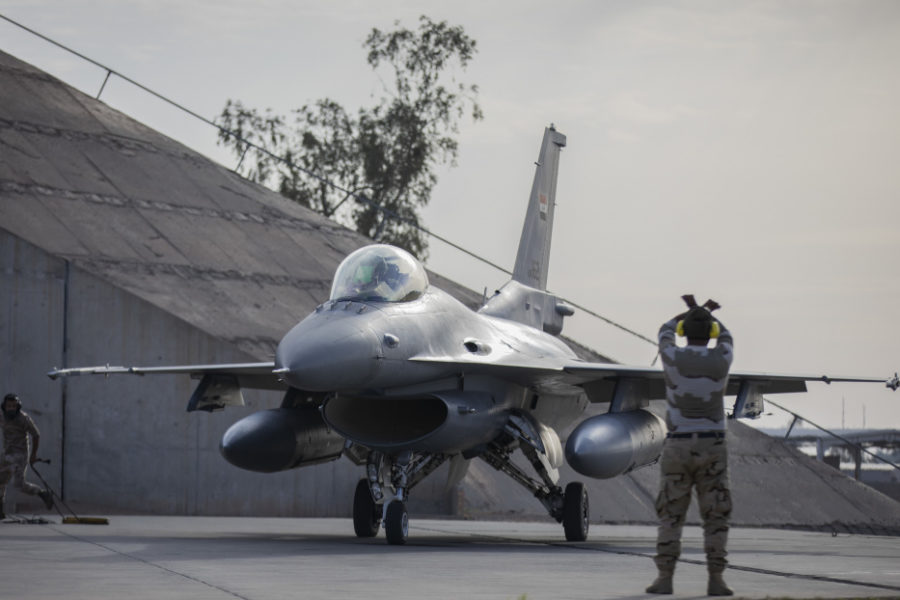Iranian-backed militias have focused attacks on key bases in Iraq, prompting U.S. contractors to leave the Iraqi Air Force’s major F-16 base as the country’s Fighting Falcons are working to increase their capacity to train and conduct airstrikes, according to a new report.
The militias continued to conduct harassment-style attacks on the U.S. Embassy, diplomatic facilities, and installations such as Balad Air Base, according to the Defense Department’s Lead Inspector General for Operation Resolute Support in a quarterly report released May 4. Balad does not host U.S. service members, but it does host contractors from Lockheed Martin who are critical to supporting Iraqi F-16 operations.
These contractors were forced to leave the base in March “due to security threats,” the IG report states. The situation comes after a tumultuous 2020, during which contractors at times could not directly support Iraqi F-16s at the base because of a “combination of regional threats and the impact of COVID-19,” the IG’s previous quarterly report states.
Though the contractors began to return in March, “the tactics employed by the militias this quarter suggest that they may be planning more attacks,” according to the report. This played out May 3, when rockets fell on Balad again but did not cause any damage.
“We’re concerned about any use of violence by any group in Iraq. … The purpose for the U.S. in Iraq, at the invitation of the government, is to continue to prosecute the war against ISIS, the operations against ISIS,” Pentagon spokesman John F. Kirby said in a briefing the same day, without linking his comments to that specific attack. “That’s what we’re there for: We’re there to help Iraqi Security Forces as they also prosecute operations against ISIS. So any violent attack on them, or us, is of concern, and it does show that … it’s still a dangerous mission.”
In addition to the contractors, U.S. Air Force air advisers regularly visit Balad to support the Iraqi Air Force’s 9th Fighter Squadron, which flies the aircraft. However, without a dedicated advising presence and secure communications at the base, the Iraqi F-16s have not been able to join the coalition air tasking order, the report states.
Over the first quarter of 2021, Iraqi F-16s flew 299 total sorties, 295 of which were training. This was a slight increase over the 271 total sorties during the previous quarter, the report states. The strike sorties used primarily GBU-12 guided bombs and Mk 82 unguided bombs.
Combined Joint Task Force-Operation Inherent Resolve said its focus is on improving the Iraqi Air Force’s ability to plan and task and to possibly allow the aircraft to join the air tasking order, the report states.

